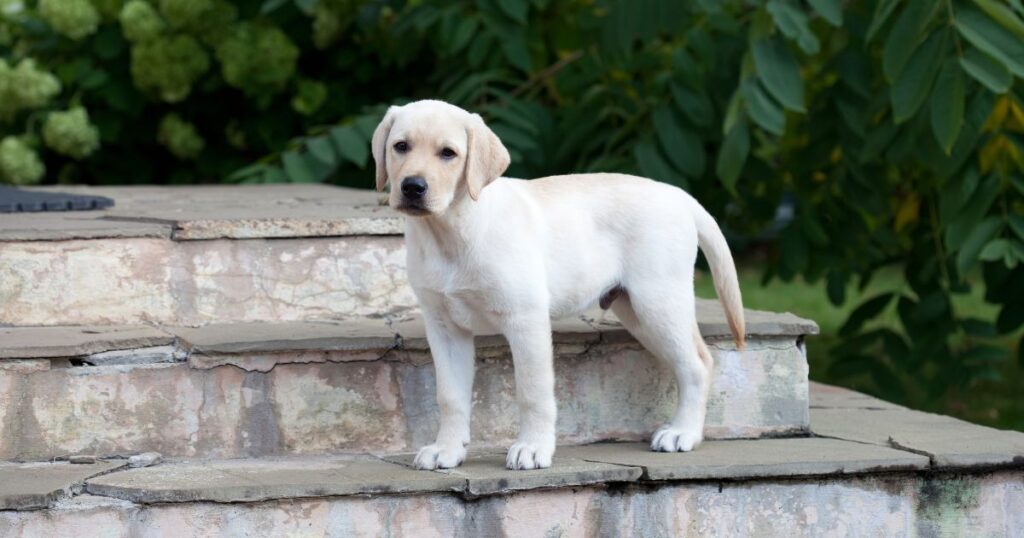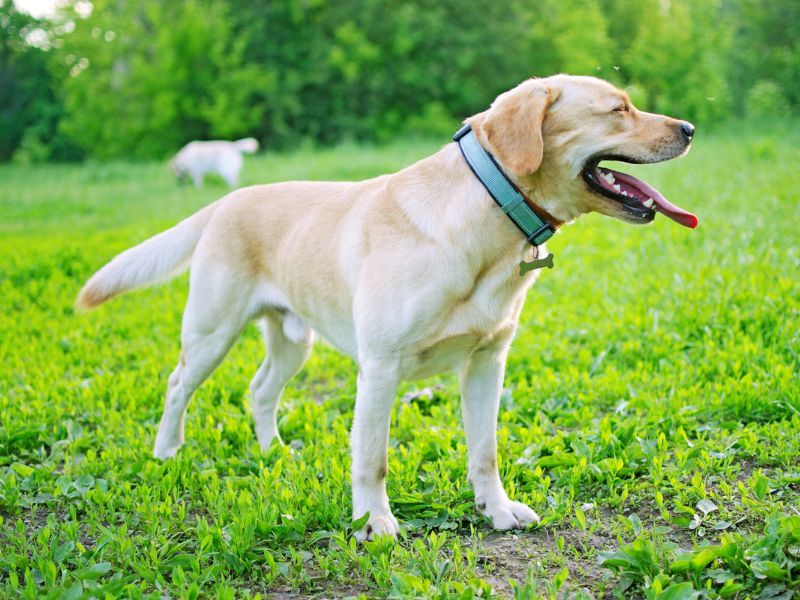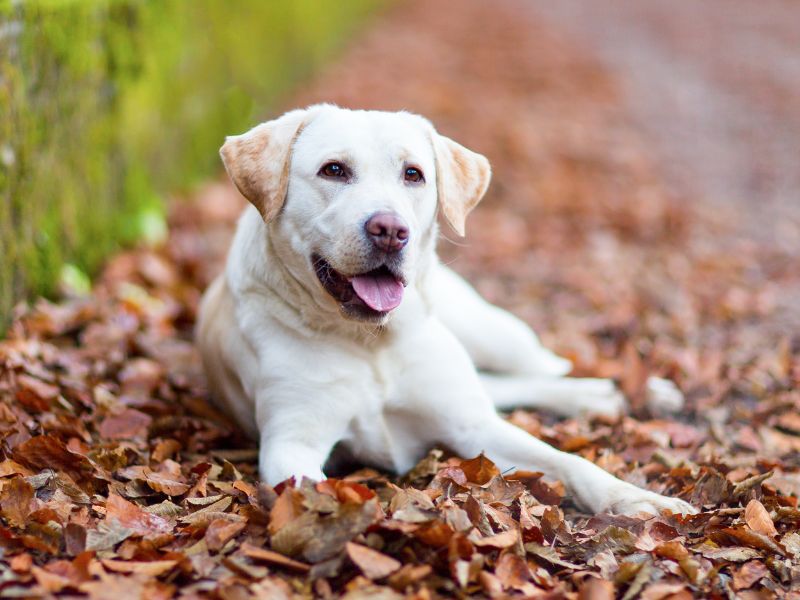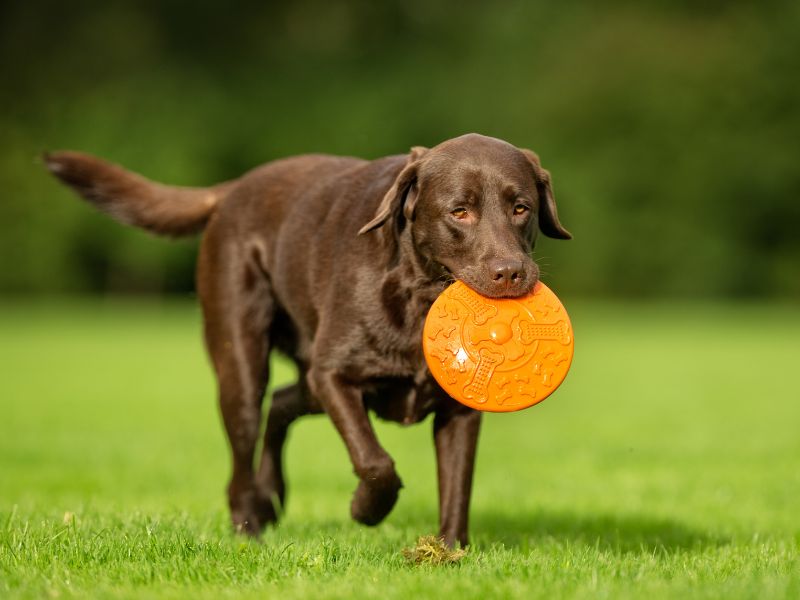
A new trend in the dog world, miniature Labradors are becoming increasingly popular among dog lovers looking for a smaller version of the classic Labrador breed. These tiny pups are bred to be a more manageable option for families who may not have the space or energy for a full-sized Labrador. By combining the beloved traits of a Labrador with a smaller size, miniature Labradors offer the best of both worlds for pet owners. These mini Labs are the offspring of two purebred Labrador parents who both carry the recessive dwarfism gene, resulting in dogs with shorter legs than standard Labradors. Typically growing to be around 20-22 inches in height and 30-50 pounds in weight, these small Labradors maintain the friendly, intelligent, and loyal temperament that has made Labradors a popular choice for families worldwide. While the idea of a miniature Labrador may be appealing, prospective owners should be aware that, like all dogs, they have their own unique needs and potential health issues. It is important to thoroughly research the breed and consider these factors before deciding to bring a miniature Lab into your home. With proper care, these pint-sized companions can become cherished pets and wonderful additions to any family.

The Dwarf Labrador, also known as the Miniature Labrador, is a pint-sized version of the beloved Labrador breed. These charming little dogs are perfect for families due to their affectionate and friendly nature. Dwarf Labradors are not a separate breed but rather a result of a genetic condition called dwarfism. Measuring under 14 inches in height and weighing between 20 to 40 pounds, Dwarf Labradors are much smaller than their standard counterparts. This makes them a great option for those who want a Labrador companion but may not have the space for a larger dog. It’s important to note that most Dwarf Labradors are not mixed breeds, they are purebred Labradors with a genetic variation that causes them to be smaller in size. Unlike intentionally bred designer mixes like the Cavador or Cockador, Dwarf Labradors occur naturally due to genetics. In conclusion, the Dwarf Labrador is a lovable and friendly companion that embodies all the wonderful qualities of a Labrador in a more compact size. They are a great choice for those looking for a smaller but equally charming version of the Labrador breed.

Symptoms of dwarf Labradors, also known as miniature Labradors, are primarily related to their physical appearance due to the genetic condition of dwarfism. These dogs often have shorter legs compared to regular Labradors, making them appear smaller in size. This unique feature is a result of a mutation in their genes that affects the development of their leg bones, leading to a difference in height. Despite their shorter stature, dwarf Labradors still exhibit the typical characteristics of the Labrador breed, such as a deep chest and an athletic build. While they may look slightly different from standard Labradors, their friendly and energetic disposition remains the same. It is important to note that dwarf Labradors are not purposely bred to be smaller, as their size is a consequence of a genetic mutation. When considering dwarf Labradors as pets, prospective owners should be aware of potential health concerns that may arise due to their condition. It is advisable to consult with a veterinarian knowledgeable about dwarfism in dogs to ensure proper care for these unique canines. While dwarf Labradors may require special attention and care, they can still make wonderful companions for those willing to accommodate their specific needs.

Health tests are essential for Dwarf Labradors to monitor potential health issues associated with their condition. These tests can help detect abnormalities early on and prevent further complications in these lovable pups. Let’s explore some of the common health tests recommended for Dwarf Labradors in a friendly and informative manner. Routine blood tests are crucial for Dwarf Labradors to monitor their overall health and detect any underlying conditions. These tests can provide valuable information about their organ function, blood cell counts, and overall well-being. Regular blood tests can help veterinarians assess the health status of Dwarf Labradors and determine if any treatment or medication is necessary. X-rays are another important health test for Dwarf Labradors to evaluate the condition of their bones and joints. X-rays can help veterinarians identify any abnormalities or issues with their bone structure, such as arthritis, hip dysplasia, or other skeletal problems. Early detection of these issues through x-rays can help in managing their condition and providing appropriate care to ensure their comfort and well-being. Genetic testing is also recommended for Dwarf Labradors to identify specific genetic mutations or disorders that may be present in their DNA. This type of testing can help determine if a Dwarf Labrador carries the dwarfism gene or any other genetic conditions that may impact their health. Understanding their genetic makeup can aid veterinarians in providing personalized care and preventive measures to address potential health risks. Regular physical examinations by a veterinarian are essential for Dwarf Labradors to assess their overall health and well-being. During these exams, veterinarians can check for any signs of discomfort, mobility issues, or other health concerns that may require further evaluation. Physical exams allow veterinarians to monitor their progress, adjust treatment plans if necessary, and ensure that Dwarf Labradors are receiving the care they need to live a happy and healthy life. By staying proactive and scheduling regular health tests for Dwarf Labradors, owners can help maintain their furry companions’ well-being and address any potential health issues promptly. Working closely with a veterinarian and following their recommendations can ensure that Dwarf Labradors receive the best possible care to live a long and fulfilling life with their loving families.

Dwarf Labradors, also known as Miniature Labradors, are a unique breed resulting from a genetic condition called dwarfism. While they are rare, it is important for breeders and owners to be aware of the health concerns associated with this genetic mutation and to conduct necessary health tests to ensure the well-being of these dogs. To ensure the health of a dwarf Labrador, it is crucial to first conduct genetic screening of both parent dogs before breeding. This screening helps identify potential carriers of the dwarfism gene and prevents the condition from being passed on to future generations. Genetic testing can be easily done through a cheek swab or blood test. In addition to dwarfism, other health issues such as hip and elbow dysplasia, eye problems, and heart conditions can be identified through various health tests. These tests help detect issues early on and ensure proper care for the dog. It is important to have a qualified veterinarian conduct these tests and provide accurate results. Maintaining a proper diet and regular exercise routine is also essential for the overall health of dwarf Labradors. Pippa Mattinson, an expert on Labrador Retrievers, offers valuable training tips specifically tailored for miniature Labradors. With over thirty years of experience in breeding and training Labradors, Pippa’s advice is comprehensive and reliable for owners of this lovable breed. Resources such as Pippa’s Labrador Site and Dogsnet website offer free training tips on various topics like heel work, recall, and motivation. Additionally, Pippa’s online training courses provide in-depth guidance for owners looking to strengthen the bond with their miniature Labradors. By signing up for Pippa’s training course updates, owners can stay informed about the latest training content and ensure their miniature Labradors are well-trained, happy, and healthy. Overall, utilizing resources from experts like Pippa Mattinson can greatly benefit both new and experienced miniature Labrador owners in their journey of raising a well-behaved companion.

Is it possible to purchase a smaller-sized Labrador? While the idea of a miniature Labrador may be enticing, it’s crucial to approach the decision with caution. Miniature Labradors are gaining popularity for their compact size and suitability for small living spaces, but it’s essential to find reputable breeders who prioritize the health and well-being of these dogs. When searching for a trustworthy miniature Labrador breeder, it’s important to do thorough research on their background and reputation. Look for breeders who genuinely care about the dogs they breed and prioritize their health over profit. Additionally, inquire about the health history of the parents of the puppies to understand any potential genetic issues they may inherit. Visiting the breeder’s facility in person is also recommended to ensure the dogs are raised in a clean and loving environment. Pay attention to factors like space, cleanliness, and socialization to ensure the puppies are well cared for. A responsible breeder should also be knowledgeable about the miniature Labrador breed’s traits, potential health issues, and proper care. While the idea of a miniature Labrador may be appealing, there are risks to consider. Some breeders may resort to unethical practices, such as breeding Labradors with other smaller breeds or selecting dogs with health issues to create smaller-sized Labs. It’s important to be cautious and thoroughly research any breeder before committing to a new pet. Ultimately, prioritizing the health and well-being of the dogs should be the top consideration when looking for a miniature Labrador breeder. Take the time to find a reputable breeder who genuinely cares about the breed and invests in the dogs’ welfare. By making an informed decision and choosing a responsible breeder, you can ensure that your future miniature Labrador is healthy, happy, and well-cared for.

Interested in learning more about miniature Labradors? Mini Labs are a unique variation of the popular Labrador breed, known for their smaller size and lovable nature. Whether you’re considering adding one to your family or simply curious about these adorable pups, there’s a lot to discover about Labradors that stay small. From the genetics behind their size to the potential health concerns associated with breeding for a smaller stature, there’s plenty to consider before welcoming a mini Lab into your home. So, if you’re intrigued by these pint-sized Labs and want to learn more, dive into the world of miniature Labradors today!

Mini Labradors, also known as Miniature Labradors, are a pint-sized version of the beloved Labrador Retriever breed. Standing at around 20 to 22 inches in height and weighing between 30 to 50 pounds, these smaller pups have shorter legs but the same lovable personality as their larger counterparts. These cute canines are the offspring of two purebred Labrador parents who both carry the recessive dwarfism gene, which accounts for their diminutive size. While some Mini Labs are bred from purebred stock, there are three variations of the Mini Lab, each with its own unique origins. Despite their smaller stature, Mini Labradors share the same friendly and affectionate characteristics as standard Labs, making them excellent family pets. They are full of energy and enjoy an active lifestyle filled with play and exercise. Mini Labs sport a double coat that comes in black, chocolate, and yellow colors. Regular grooming is important to keep their coat healthy and prevent shedding. When looking to add a Miniature Labrador to your family, be sure to research and choose a reputable breeder to ensure the puppies are bred responsibly and free from potential health issues. Like all dog breeds, Mini Labs can have health problems, so regular vet check-ups and vaccinations are essential. In conclusion, Miniature Labradors are an adorable and friendly breed that can bring happiness and companionship to homes of all sizes. With proper care and love, these charming pups can be cherished family members for many years to come.


